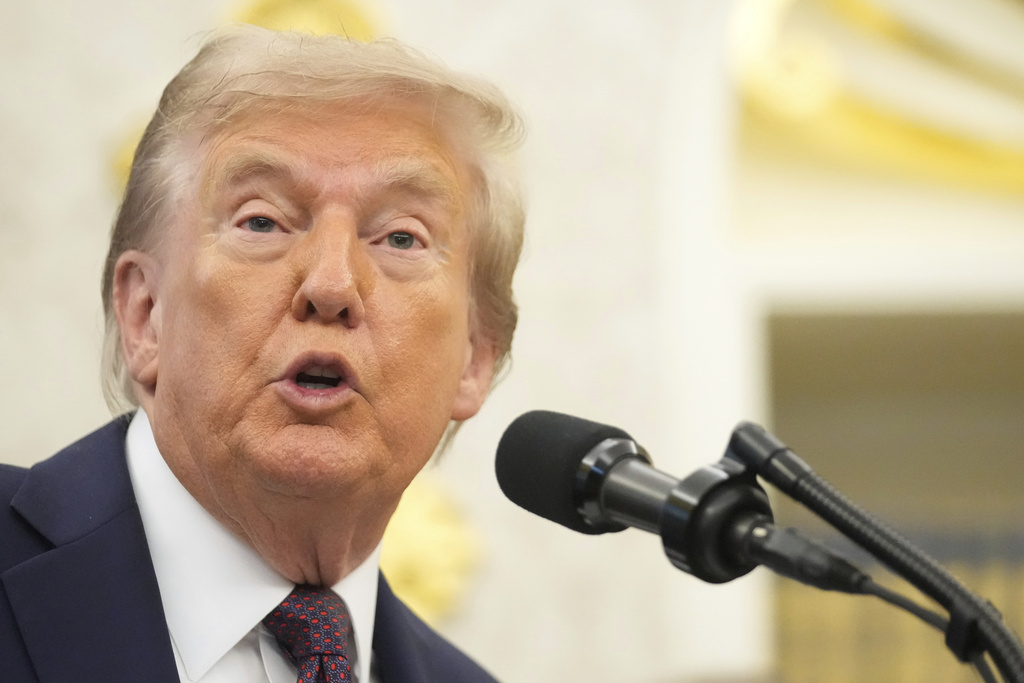President Donald Trump said Tuesday that he will direct federal law enforcement intervention to combat crime in Chicago and Baltimore, despite staunch opposition from state and local officials in both cities.
Asked by reporters in the Oval Office about sending National Guard troops to Chicago, Trump said, “We’re going in,” but added, “I didn’t say when.”
“I have an obligation, the president said. ”This isn’t a political thing.”
Trump has already sent National Guard troops into Washington and federalized the police force in the nation’s capital. More recently, he has said he plans similar moves in other cities, particularly those run by Democratic officials.
Trump said his efforts in Washington have ensured it “is now a safe zone. We have no crime.”
The White House announced separately Tuesday that more than 1,650 people have been arrested since the Trump administration first mobilized federal officials on Aug. 7.
“And this city was really bad,” Trump said. He said, “we’re really proud of” federal efforts to curb crime in Washington.
The president also used his Oval Office comments to praise Washington Mayor Muriel Bowser for working with federal forces, but criticized Democratic Illinois Gov. JB Pritzker, who has said crime in Chicago doesn’t require federal intervention.
Trump said he’d love to have Pritzker call and say, “Send in the troops” — even though the governor has repeatedly said he won’t be doing that.
“If the governor of Illinois would call up, call me up, I would love to do it,” Trump said. “Now, we’re going to do it anyway. We have the right to do it.”
Trump also said he has an “obligation to protect this country, and that includes Baltimore.” Local officials there have joined Democratic Maryland Gov. Wes Moore in similarly opposing federal law enforcement intervention.
(AP)












One Response
So if the Army arrests someone, who will prosecute. In most cases the only available court is the state court, and a state court is likely to accept the argument than due to an illegal arrest (since Federal law prohibits the military doing law enforcement other than on Federal land, such as the District of Columbia), the defendant goes free. And since this is a matter of state law, the Federal Supreme Court has no say in the matter. And since they are being deployed contrary to statute, anyone whom the soldiers arrest or injure, will argue that the soldiers were acting lawfully, and can be sued as individuals in state courts. It would make more sense for Trump to work with local and state governments, rather than resorting to armed force to seize the local governments.